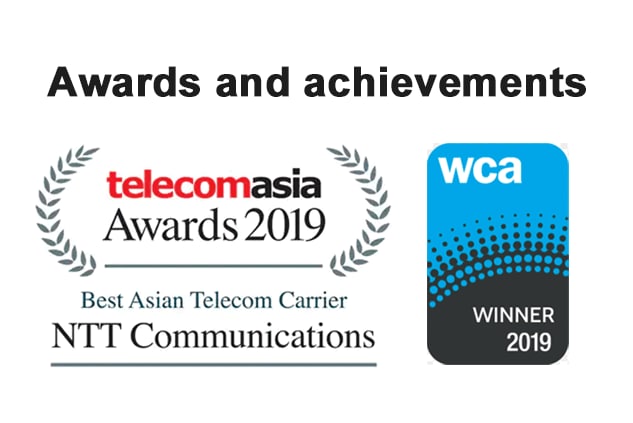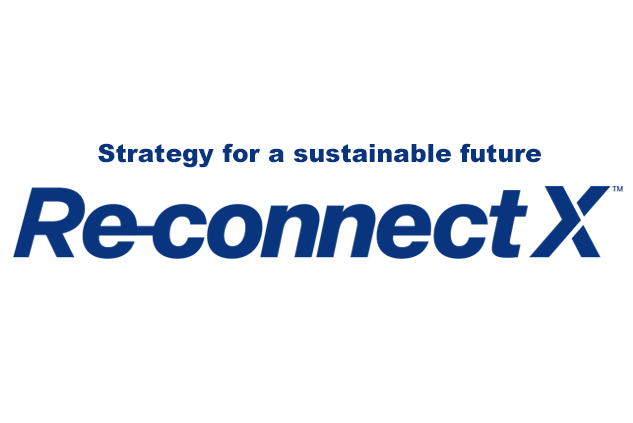CASES
-

-
We strive to create a low-carbon society and pass on a thriving global environment to the next generation.
Today ICT business operators are required to develop services that contribute to a low-carbon society as well as to make efforts to reduce the company’s carbon footprint.We are promoting environmentally conscious business activities by proactively implementing fundamental measures and adopting cutting-edge technologies.
What ICT Operators Must Do to Address Social Challenges
Power consumption at telecommunications buildings and data centers continues to rise, affected by the drastic increase of data traffic accompanying the progress of an ICT society. Reducing the company’s carbon footprint is an important management challenge for ICT operators, and NTT Communications is addressing this by introducing advanced facilities and technologies across the Group. Specifically, in order to reduce CO2 emissions from telecommunications buildings, we have improved the airflow in the server room for more effective cooling, adopted a floor panel that accumulates less heat, and set up a board or screen to change the direction of the airflow. In addition, we are pushing ahead with furthering the effective consumption of electricity through the visualization of air-conditioning effectiveness of the entire building as well as by installing Smart DASH®,an advanced integrated air-conditioning control system. Furthermore, in our offices we have introduced LED lighting and lighting equipment with occupancy sensors to reduce electricity use, along with energy saving initiatives that include room temperature control, adjusting computer power settings, and regularly cleaning air-conditioner filters.
Continuous Initiatives Recognized by Societ
These measures have resulted in an average annual decrease of CO2 emissions of 28.2%, from the operations of telecommunications buildings and the Kyoto Minami Building, for fiscal 2014 to fiscal 2016, compared to the base year (average for fiscal 2011 to fiscal 2013), and we were recognized by Kyoto City as an especially excellent operator. In 2018, the Tokai and Kyushu branches were accredited as Eco Business Establishments for their environmentally sound initiatives. We will proactively continue to reduce the Group’s carbon footprint,conducive to the sustainable global environment.

Change in CO2 Emissions of the Kyoto Minami Building and Reduction Achieved

Local governments that have given awards to NTT Communications:
Sapporo
City, Yokohama City, Nagoya City, Kyoto City,
Fukuoka Prefecture, Kagoshima Prefecture
NTT Communications’ Actions toward the SDGs
The NTT Communications Group contributes to achieving the SDGs by making extensive use of ICT to provide innovative services while continuously taking on challenges with a firm eye on what lies ahead.
Contributing to SDGs by Realizing a Low-carbon Society through the Use of ICT
From a global perspective, we will focus on improving the energy efficiency of ICT-related equipment that has a significant impact on the environment and strive to preserve the global environment to pass on a green, healthy planet to the next generation.

We use solar power at telecommunications buildings and data centers in Tokyo. Looking ahead,we will continue to proactively use clean, renewable energies to reduce GHG emissions.
We will achieve a reduction of waste generated from office-related work by thoroughly implementing the 3Rs (reduce,reuse, and recycle) across our business.
We are making an effort to preserve sustainable marine resources by performing environmental assessments prior to laying out a subsea communications cable network and carrying out minesweeping upon construction as well as through our activities to preserve ecosystems such as corals.

 EN
EN







